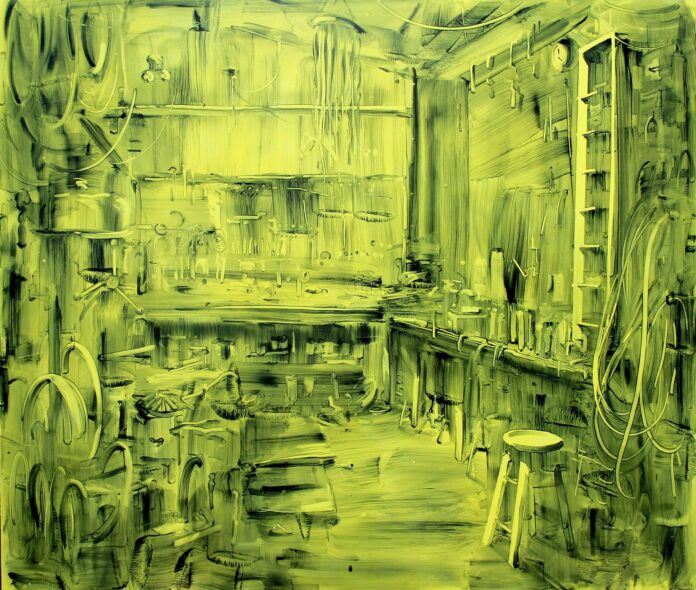Graham Crowley, an artist who has been exhibiting widely since the 1970s, has been announced as the winner of this year’s distinguished John Moores Painting Prize. His 2022 painting Light Industry—which reimagines a motorcycle dealership he visited in his home county of Suffolk—was selected from a record 3,357 entries. These were whittled down to 70, for a show now open at the Walker Art Gallery, and then to a final shortlist of five.
The biennial prize, established in 1957 and named after its founding sponsor, the businessman John Moores, has historically been positioned as the premier award for British painting, with previous winners including David Hockney, Peter Doig, Keith Coventry, Rose Wylie and, in 2020, Kathryn Maple.
It is given to an artist over the age of 18 who lives or is based professionally in the UK, with the winner receiving prize money of £25,000 and a solo show at the Walker Art Gallery in Liverpool. Each remaining shortlisted painter, meanwhile, is given £2,500.
This year was the tenth time Crowley had entered work into the competition, his first having been in 1976. Over that near five-decade period, his practice has evolved from abstract to more figurative work, including still-lifes filled with surreal details—such as a man with a pencil for a nose—and landscapes cast in bright, luminous colour.
Light Industry continues his interest in luminosity. The work, part of a series he developed from memory, renders what could otherwise be seen as an ordinary workshop in an otherwordly green. In a statement the artist said: “What I found enthralling about the place was the light; a diffused, dusty kind of light that emanated from a grubby, obscured skylight.”
Speaking in an interview with YouTube channel ArtTop10 last year, he said: “What I’m really preoccupied by with [these paintings]…is the shadow. I keep thinking: where is the light coming from?” He also discussed how the 19th-century French artist Édouard Manet influenced his use of a “wet-on-wet” technique, which encourages simultaneous appreciation of subject matter and the act of painting itself.
Crowley’s painting was chosen by a jury of five, including the artists Marlene Smith and Yu Hong, as well as the critic duo The White Pube. In their statement, White Pube said: “Graham Crowley’s painting is a rugged use of paint that manages to make a rugged scene absolutely glow; a blur of painting that makes memory and space momentarily lucid. In places, the monochromatic image ceases to be an image and paint and colour take over, which is very much the desired effect of a workshop—a haven we know all creatives are excited by.”
Though not widely known in the mainstream art circuit, Crowley has enjoyed a notable and lengthy career. He has had exhibitions at the Paris and Venice biennials, both in 1982, as well as at prominent UK institutions such as the Fitzwilliam Museum in Cambridge, while he is represented within the collection of the Victoria and Albert Museum in London among others. Crowley has also completed public commissions and served as a visiting tutor at London’s Royal College of Art.
As part of Crowley’s prize win, the Walker Art Gallery has the option to purchase the work, a decision that has yet to be confirmed. In 2021, Maple’s winning work The Common was selected for acquisition.
The other shortlisted artists for this year are: Nicholas Baldion with his Social Murder: Grenfell In Three Parts, Emily Kraus with Stochastic 14, Damian Taylor with Other Light and Francisco Valdes with Champagne Cascade I.
Elsewhere, the winner of another significant prize on the UK art scene was announced this week. Eloise Hawser, a mixed-media artist and conceptual sculptor based in London, was awarded the annual David and Yuko Juda Art Foundation grant. Hawser, whose work explores topics such as the relationship between civil engineering and the mechanisms of the human body, was awarded £50,000 to help further her practice.
Hawser was selected by a panel of judges including Andrea Rose, the former director of visual arts at the British Council, and Reinhard Spieler, director of the Sprengel Museum in Hannover, Germany.

























